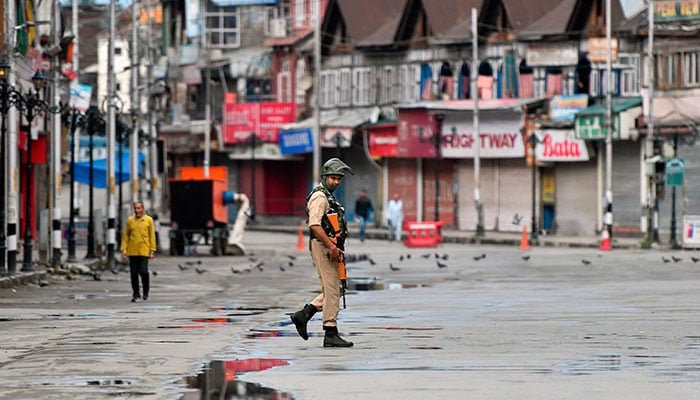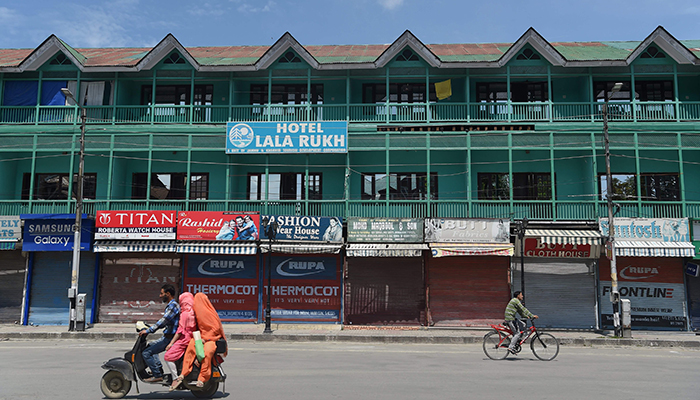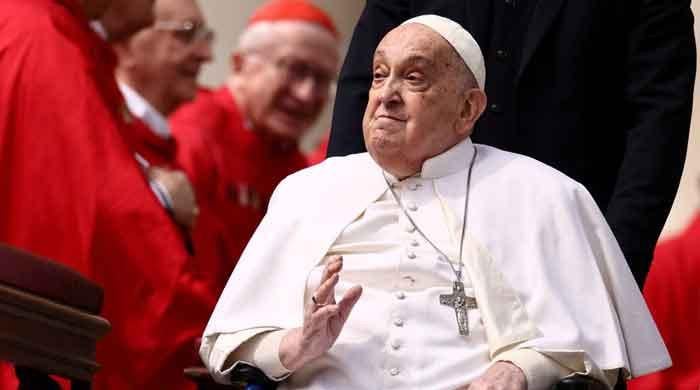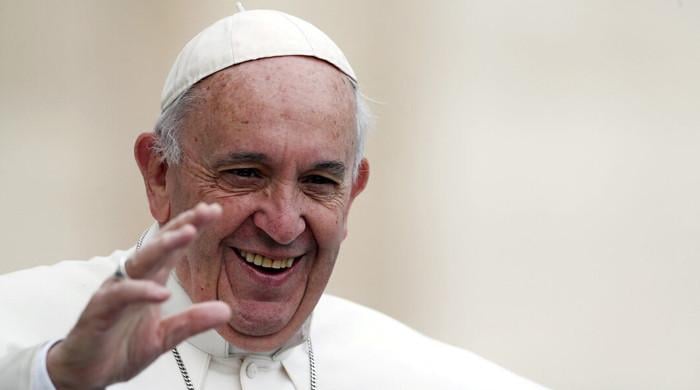India tightens security in occupied Kashmir following call for march to UN office
UN human rights experts have urged India to end crackdown in occupied Kashmir
August 23, 2019

SRINAGAR: Indian authorities tightened security in occupied Kashmir following calls by Hurriyat leaders for a march to a United Nations office after Friday prayers.
Posters appeared overnight this week in Srinagar calling for a march to the office of the UN Military Observer Group for India and Pakistan (UNMOGIP), to protest against India’s revocation of occupied Kashmir's special autonomy.
The UNMOGIP was set up in 1949 after the first war between India and Pakistan over Kashmir, the Himalayan region both countries claim in full but rule in part. The group monitors ceasefire violations along the border between the countries.
Earlier on Friday, Hurriyat leaders urged Kashmiris in the occupied valley to defy a curfew and join the mass march against New Delhi’s move to revoke the region's autonomy.
Indian occupied Kashmir has been under curfew and lockdown since August 5 after the Indian government abolished Article 370, which granted special status to the valley. The curfew and lockdown has led to protests in the valley with thousands of Kashmiris including Hurriyat leaders placed under house arrest or detained.
Curfew and communication blackout entered its 19th day in the occupied valley today with empty streets and thousands of Indian troops patrolling them.
Schools in the valley continue to give an empty look as parents refuse to risk the lives of their children.
As a result of the strict curfew and communication blockade, a humanitarian crisis is fast unfolding as residents of occupied Kashmir face severe shortages of essential commodities including baby food and life-saving medicines.

Shops shut
Protests have broken out in parts of Srinagar over the last two weeks, some drawing hundreds of people. At least 152 people have been hurt by teargas and pellets since security forces launched a sweeping crackdown, data from the Himalayan region’s two main hospitals shows.
On Friday, several dozen paramilitary personnel manned at least two barriers on the main road leading to the office of UNMOGIP in Srinagar and public movement around it was blocked.
Entry into the city’s old quarter, which has long been a centre for protests, was severely curtailed, as policemen blocked street after street with concertina wire.
Large swathes of Srinagar remained deserted with shops shut except for some provision stores with shutters half-down.
Police vans patrolled some areas announcing a curfew and asking people to stay indoors.
On the Dal Lake, long rows of houseboats, which would typically be packed with tourists this time of the year, floated closed and empty, as police patrolled its mirror-calm waters in boats.
UN urges India to end communication shutdown in IoK
United Nations human rights experts have urged India to end the crackdown on freedom of expression, access to information and peaceful protests in occupied Kashmir.
“The shutdown of the internet and telecommunication networks, without justification from the Indian government, are inconsistent with the fundamental norms of necessity and proportionality,” the UN experts said. “The blackout is a form of collective punishment of the people of Jammu and Kashmir, without even a pretext of a precipitating offence.”
“We remind the Indian authorities that the restrictions imposed by the Indian government are intrinsically disproportionate because they preclude considerations of the specific circumstances of each proposed assembly,” they added.
“We are gravely concerned about allegations that the whereabouts of some of those detained is not known as well as the general heightened risk of enforced disappearances, which may proliferate against the backdrop of mass arrests and restricted access to the internet and other communications networks,” added the experts.












